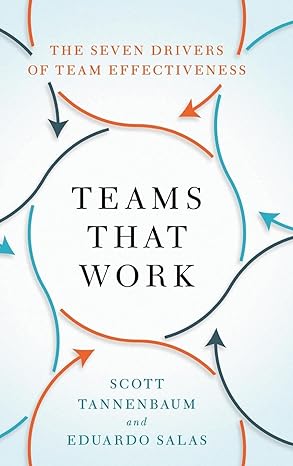Smarter together: Helping complex research teams work efficiently
About the Team Science Component
The CCTS Team Science component helps research teams work more effectively by applying evidence-based strategies drawn from the science of team dynamics. While most research teams form organically—without formal guidance—decades of research show that intentional teamwork practices lead to stronger collaboration, improved outcomes, and more innovative science.
Our approach is rooted in the science of team science (SciTS)—a cross-disciplinary field focused on understanding and improving how research teams collaborate. SciTS provides practical, evidence-based strategies for everything from goal alignment and communication, to conflict resolution and leadership in complex team environments.
In translational research, collaboration is especially complex. Teams often span disciplines, departments, and institutions, forming multi-team systems. These teams frequently encounter preventable challenges that can stall or derail progress. The CCTS Team Science component is designed to help teams address these issues early and effectively.
We offer:
- grant support and planning services
- workshops and training grounded in current research
- ongoing evaluation to support team development over time
and more!
Why should you partner with us?
If you are part of a research team at one of the CCTS partner organizations, we can help you:
- understand your team's collaboration patterns
- build skills for more effective teamwork
- apply best practices tailored to your goals
Leadership and Staff
| Eric Thomas, MD, MPH, Director | [email protected] | 713-500-7958 |
| Eduardo Salas, PhD, Director | [email protected] | 713-348-3917 |
| Gabriela Fernández Castillo, MA, Graduate Researcher | [email protected] |
The Team Science component is aided by the experience and backgrounds of its personnel:
Eric J. Thomas, MD, MPH, professor of medicine and associate dean for healthcare quality at McGovern Medical School, UTHealth Houston, directs the UTHealth Houston—Memorial Hermann Center for Healthcare Quality and Safety and has conducted pioneering work on measuring team behaviors.
Eduardo Salas, PhD, professor and Allyn R. and Gladys M. Cline chair at Rice University, is a world leader in teamwork and team training.
Gabriela Fernández Castillo, MA, doctoral student at Rice University, specializes in understanding and improving how complex, interdisciplinary research teams collaborate to enhance effectiveness in scientific and healthcare settings.
The CCTS Team Science component provides a range of services to support collaboration in research teams from early-stage planning to long-term development.
For assistance with any of the following services, please email Gabi Fernández Castillo at [email protected].
Consultation Services
We offer consultation services tailored to your needs, including team charter development and collaboration planning focused on clarifying vision, roles, culture, outputs, and decision-making processes.
Workshops
Our workshops are designed to build essential team science competencies. In our flagship session, Team Science 101, we explore the seven key drivers of team performance and show how organizational principles can be applied to enhance collaboration. We also offer customized workshops upon request, including sessions on conflict management, inclusive collaboration, and other topics tailored to your team's needs.
Grant Services
We also support research development through grant services, including being written into multi-PI grant proposals as team science experts and providing multi-PI grant review to strengthen collaborative aims and team structures.
Our practical, easy-to-use resources will support and enhance your team’s development and effectiveness. The Team Science Toolkit includes a customizable Team Charter Template, interactive tools such as Team MAPPS, and curated readings and media to deepen your knowledge. These self-serve materials are designed to help teams build strong foundations, enhance collaboration, and sustain high performance over time.
Recommended readings and media
This resource contains the main journals, pertinent articles, books, book chapters, and more, all related to team science: Oxford Bibliographies
Books
 |
Teams That Work: The Seven Drivers of Team Effectiveness, by Scott Tannenbaum and Eduardo Salas |
Articles
Bisbey, T. M., Reyes, D. L., Traylor, A. M., & Salas, E. (2019). Teams of psychologists helping teams: The evolution of the science of team training. American Psychologist, 74(3), 278–289. https://doi.org/10.1037/amp0000419
Hall, K. L., Vogel, A. L., Huang, G. C., Serrano, K. J., Rice, E. L., Tsakraklides, S. P., & Fiore, S. M. (2018). The science of team science: A review of the empirical evidence and research gaps on collaboration in science. American Psychologist, 73(4), 532–548. https://doi.org/10.1037/amp0000319
Hughes, A. M., Gregory, M. E., Joseph, D. L., Sonesh, S. C., Marlow, S. L., Lacerenza, C. N., Benishek, L. E., King, H. B., & Salas, E. (2016). Saving lives: A meta-analysis of team training in healthcare. Journal of Applied Psychology, 101(9), 1266–1304. https://doi.org/10.1037/apl0000120
Suggested conferences
INGRoup, the interdisciplinary network for group research. Learn more at ingroup.net.
Stay connected and keep learning by participating in our events, including talks, lunch-and-learn sessions, and interactive workshops.
View the CCTS calendar.
We use a mixed-methods approach to evaluate team science development, guided by established frameworks such as the Seven C’s of Team Science. Our evaluation methods include interviews, surveys, and feedback from participating teams to assess growth in collaboration, communication, and team effectiveness. We share insights through annual reports and highlight success stories that illustrate real-world impact. Key metrics—such as the number of consultations delivered, events hosted, and research teams supported—help us track the institute’s growth and refine our services over time.
We are always looking for feedback to improve our programs and services; if you would like to share your thoughts or experiences, please reach out to us anytime.
Contact Eric J. Thomas, MD, PhD, at: [email protected]